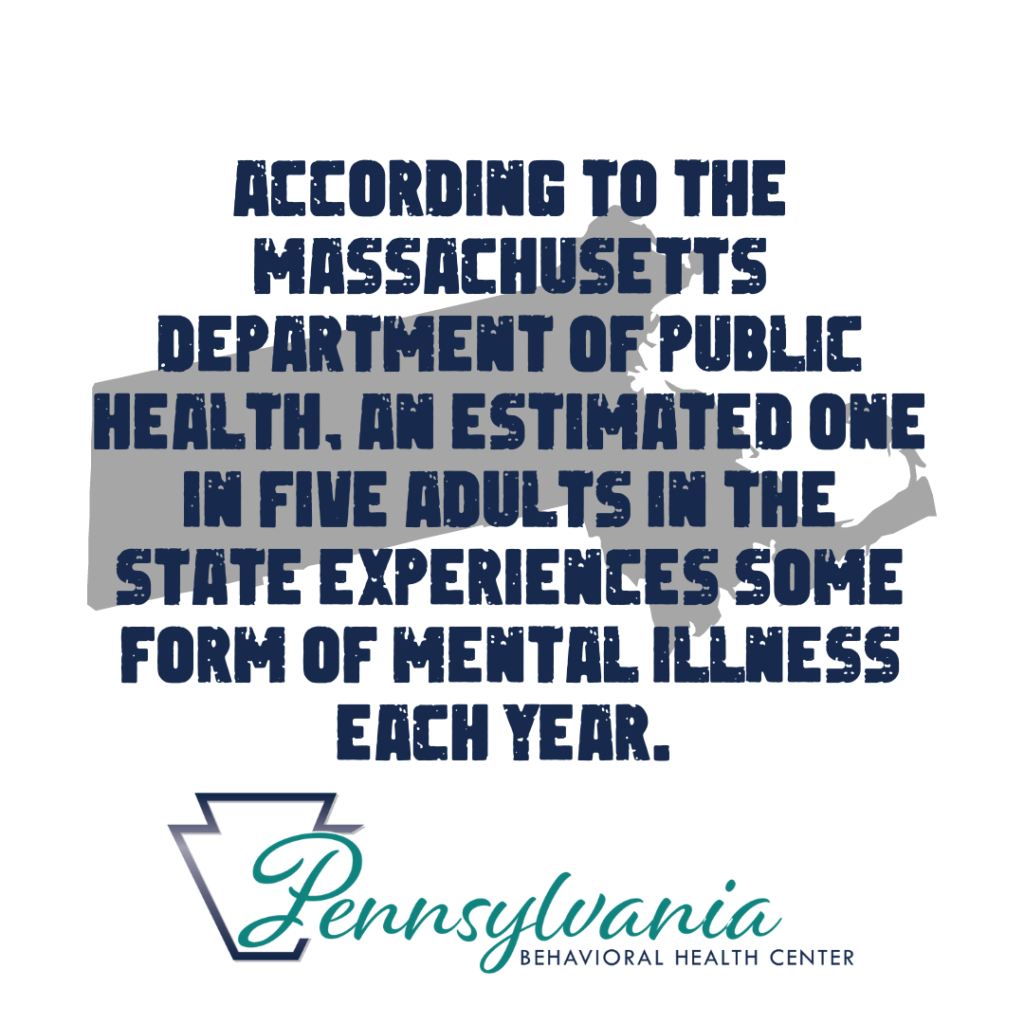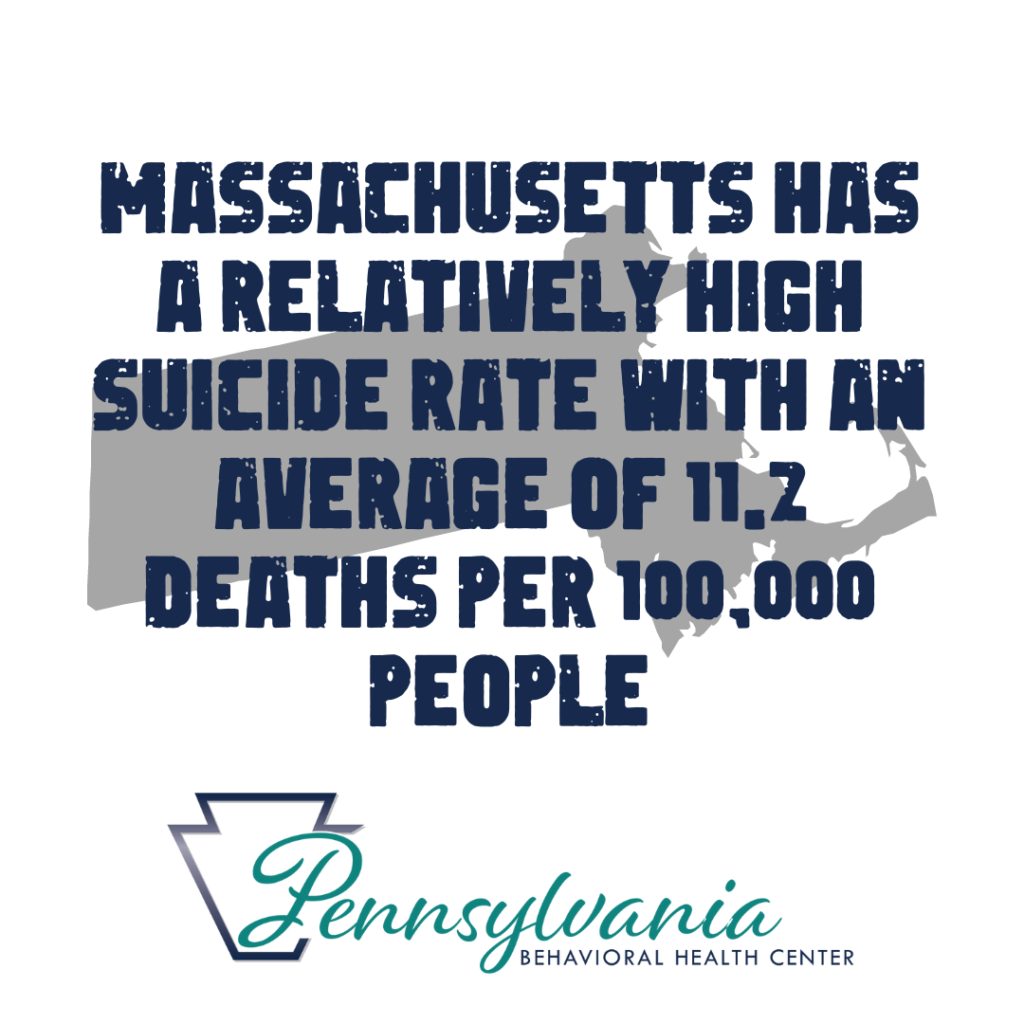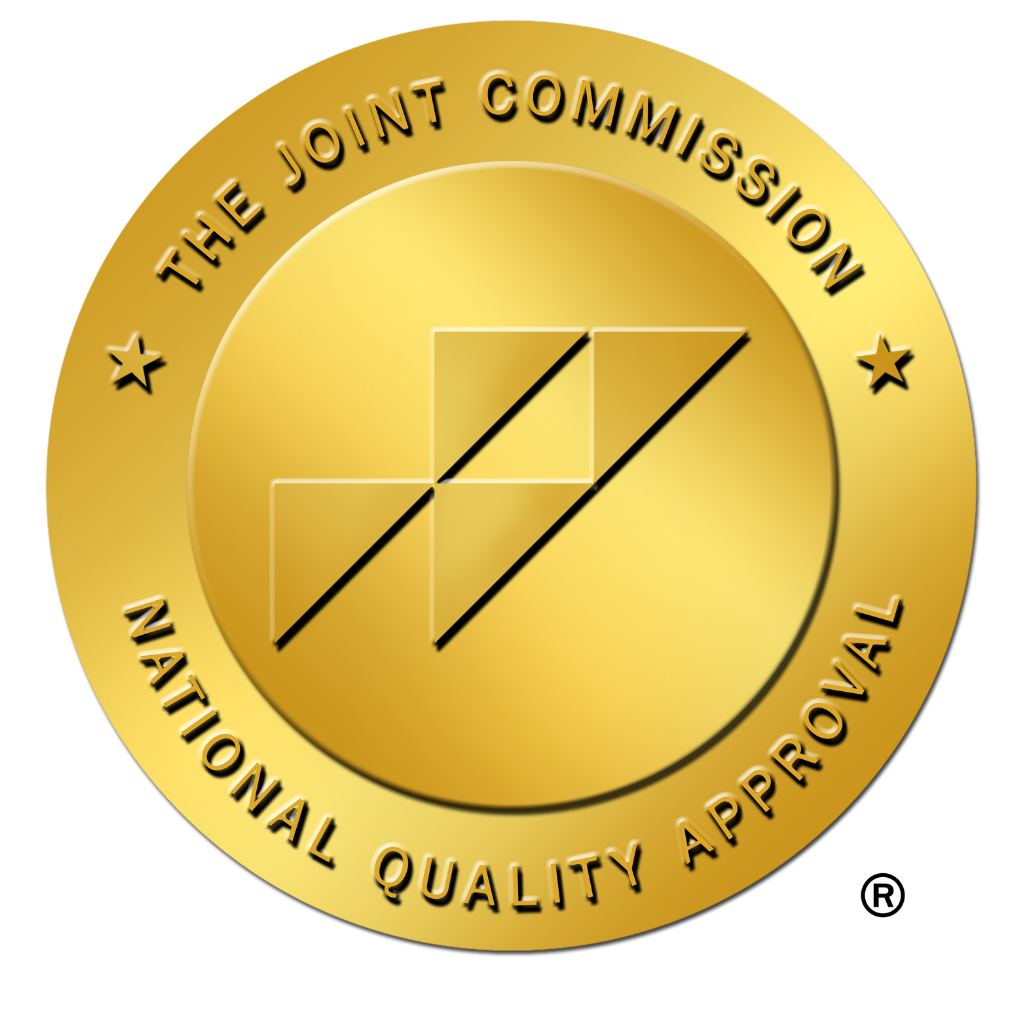Massachusetts Inpatient & Outpatient Mental Health Treatment

Percentage of adults in Massachusetts experiencing some form of Mental Illness
Massachusetts Mental Health
On this page, we will discuss Massachusetts inpatient & outpatient mental health treatment options and information. Massachusetts, like many other states in the US, faces significant challenges when it comes to mental health.
According to the Massachusetts Department of Public Health, an estimated one in five adults in the state experiences some form of mental illness each year. This translates to roughly 500,000 people in the state who may require treatment for conditions like depression, anxiety, bipolar disorder, or schizophrenia. Additionally, the state has a relatively high suicide rate, with an average of 11.2 deaths per 100,000 people in 2019, according to the American Foundation for Suicide Prevention.
The COVID-19 pandemic has also had a significant impact on mental health in Massachusetts, with many people experiencing increased stress, anxiety, and depression due to factors such as social isolation, financial stress, and the fear of contracting the virus. According to a survey conducted by the Centers for Disease Control and Prevention, Massachusetts residents reported a significant increase in symptoms of anxiety and depression during the pandemic, with rates higher than the national average.
In addition to the personal toll mental health problems take on individuals and their families, there is also a significant economic burden associated with mental illness in Massachusetts. According to a report by the Massachusetts Health Policy Commission, the total economic burden of mental illness in the state was estimated to be $14.2 billion in 2018
Mental Health Treatment Options
Outpatient mental health treatment is widely available in Massachusetts, with many clinics and private practices offering services such as psychotherapy, medication management, and support groups. Inpatient treatment is also available for those who require a higher level of care, such as individuals who are experiencing acute psychiatric symptoms or who may be a danger to themselves or others.
One unique form of outpatient care available in Massachusetts is partial hospitalization. This program provides intensive treatment to individuals who require more support than traditional outpatient therapy but do not need to be hospitalized. Partial hospitalization may involve several hours of therapy per day, multiple times per week, and typically lasts for several weeks.
Intensive outpatient treatment is another option for individuals who need more support than traditional outpatient therapy but do not require inpatient care. This type of treatment typically involves several hours of therapy per week, often in a group setting, and may last for several months.
Inpatient mental health treatment is available in hospitals and specialized psychiatric facilities throughout the state. These facilities provide round-the-clock care and support to individuals who require close monitoring and intensive treatment for acute psychiatric symptoms.


Mental health services are covered by insurance in Massachusetts, including therapy, medication management, and inpatient care. However, coverage varies depending on the specific plan.
You can find a mental health provider in Massachusetts by calling Pennsylvania Behavioral Health Center at 610-563-2752, using your insurance provider’s website or directory, searching online directories such as Psychology Today, or asking for recommendations from friends, family, or healthcare professionals.
According to a report by the Massachusetts Department of Public Health, the most common mental health disorders in Massachusetts include anxiety disorders, major depressive disorder, and bipolar disorder.
There is no single “best” hospital for psychiatric care in Massachusetts. The best hospital for psychiatric care depends on individual needs and preferences.
Inpatient mental health treatment in Massachusetts involves staying overnight in a hospital or treatment facility, while outpatient treatment involves regular appointments with a mental health provider without staying overnight.
Yes, there are free mental health resources in Massachusetts, including community mental health centers, non-profit organizations, and crisis hotlines.
You can get help for a loved one with a mental illness in Massachusetts by encouraging them to seek professional help, finding a mental health provider, and providing emotional support. We offer professional interventions here at Pennsylvania Behavioral Health Center.
Yes, there are support groups for people with mental health disorders in Massachusetts, including those offered by non-profit organizations, community mental health centers, and hospitals.
According to the American Foundation for Suicide Prevention, the suicide rate in Massachusetts is 11.5 per 100,000 people. Resources for suicide prevention in Massachusetts include crisis hotlines, support groups, and mental health providers.
Captain America on Mental Health
“Taking care of your mental health is just as important as any physical ailment.” – Chris Evans
Chris Evans is an actor and director born and raised in Massachusetts, known for his role as Captain America in the Marvel Cinematic Universe. His quote emphasizes the importance of treating mental health concerns with the same level of attention and care as physical health concerns. This sentiment is increasingly recognized in the field of mental health, as it is becoming more widely understood that mental health and physical health are intertwined and must be addressed in a holistic manner.
Inpatient & Outpatient Mental Health
Here are some places in Massachusetts that provide psychiatric treatment options:
McLean Hospital – Located in Belmont, McLean Hospital is a renowned psychiatric hospital that provides inpatient and outpatient care for a range of mental health conditions. They offer a wide range of treatment options, including specialized programs for conditions such as eating disorders, addiction, and mood disorders.
Massachusetts General Hospital – Located in Boston, Massachusetts General Hospital offers a range of psychiatric services, including inpatient and outpatient care, partial hospitalization programs, and medication management. They have a team of psychiatrists, psychologists, and social workers who specialize in treating a range of mental health conditions.
Boston Medical Center – Located in Boston, Boston Medical Center offers a range of psychiatric services, including inpatient care, partial hospitalization programs, and outpatient therapy. They have a team of mental health professionals who specialize in treating conditions such as depression, anxiety, and addiction.
Baystate Medical Center – Located in Springfield, Baystate Medical Center offers a range of psychiatric services, including inpatient care, partial hospitalization programs, and outpatient therapy. They have a team of mental health professionals who specialize in treating conditions such as schizophrenia, bipolar disorder, and substance abuse.
Arbour Counseling Services – With locations throughout Massachusetts, Arbour Counseling Services offers a range of outpatient therapy and medication management services for individuals with mental health concerns. They have a team of licensed therapists and psychiatrists who specialize in treating conditions such as depression, anxiety, and PTSD.
There are several prevalent mental health disorders in Massachusetts, including depression, anxiety, bipolar disorder, and schizophrenia. Depression, in particular, is a significant issue in the state, with an estimated 7.5% of adults reporting a major depressive episode in the past year.
Treatment options for mental health conditions in Massachusetts may include medication, psychotherapy, or a combination of both. Additionally, support groups and peer-led initiatives may also be helpful for some individuals.
Here is a list of mental health hotlines and resources for people in Massachusetts:
- National Suicide Prevention Lifeline: 1-800-273-TALK (8255)
- Samaritans Statewide Helpline: 1-877-870-HOPE (4673)
- Massachusetts Substance Use Helpline: 1-800-327-5050
- Massachusetts Behavioral Health Access Line: 1-800-854-7771
- Disaster Distress Helpline: 1-800-985-5990
- Trevor Project Lifeline (for LGBTQ+ youth): 1-866-488-7386
- NAMI Massachusetts Helpline: 1-800-370-9085
- Boston Emergency Services Team (BEST): 1-800-981-4357
- Baystate Health Mental Health Access Center: 1-800-322-0429
- Lowell Transitional Living Center Mental Health Clinic: 978-458-9888
- Pennsylvania Behavioral Health Center 610-563-2752
Sources
- Massachusetts Department of Public Health. (n.d.). Mental health. Retrieved from https://www.mass.gov/topics/mental-health
- Massachusetts General Hospital. (n.d.). Partial hospitalization program.
- McLean Hospital. (n.d.). Intensive outpatient program.
- National Alliance on Mental Illness Massachusetts. (n.d.). Home page. Retrieved from https://namimass.org/
- Samaritans of Massachusetts. (n.d.). Home page. Retrieved from https://samaritanshope.org/
- Substance Abuse and Mental Health Services Administration. (2019). National survey on drug use and health: Massachusetts state report.

